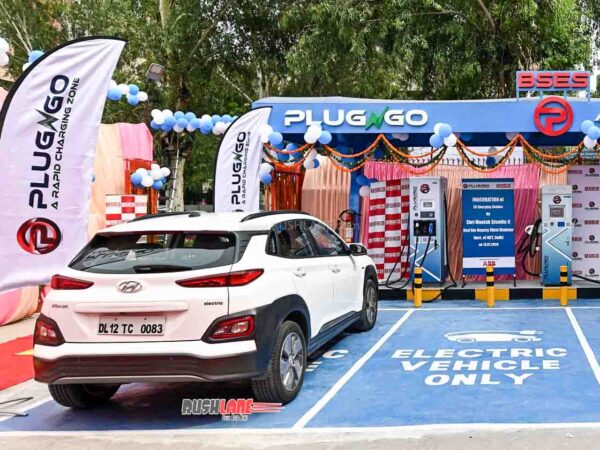The Delhi government will provide a price cut of Rs 10,000 for each kWh of an EV’s battery capacity
Decades ago, it was believed that by 2020 we would have flying cars as the ‘new normal’. Clearly, we are considerably far away from that aspirational dream. Instead, we are even struggling with a relatively poor adoption rate of EVs in the country.
However, the latest guidelines from both central and certain state governments seem to be on the right path to help India accelerate EV adoption. Recently, the Delhi government rolled out an all-new Delhi Electric Vehicle Policy (read more) through which it intends to promote emission-free vehicles in the PV (passenger vehicle) segment. Under this policy, the government intends to provide an incentive of Rs 10,000 for each kWh of battery capacity. The overall applicable incentive is capped at Rs 1.5 lakh.
Currently, India has three ‘proper’ EVs in the four-wheeler category: Hyundai Kona, MG ZS EV and Tata Nexon EV. The Tata Nexon EV has a battery size of 30.2kWh. Hence, it will be eligible for incentives up to Rs 1.5 lakh. Similarly, prospective MG ZS EV and Hyundai Kona buyers will also receive price cuts up to Rs 1.5 lakh on the original ex-showroom price.

To further sweeten the deal, the Delhi government has completely waived off registration fees and road taxes for EVs. But there is a catch: these benefits are applicable only to the first 1,000 private EV buyers in Delhi’s jurisdiction. Customers will receive the benefits once their EV’s proof of purchase is submitted to the regional transport authority. Electric vehicles purchased under Delhi Electric Vehicle Policy will wear a sticker highlighting the same.
It is good to know that the new policy from the Delhi government is relatively holistic. In addition to incentivising EV buyers, it also covers supporting infrastructure — one of the major challenges in EV adoption.
In the future, electricity DISCOMs (Distribution Companies) will work in tandem with the government and optimize load-sharing to accommodate EV charging. Furthermore, there will be a different metering system and special tariffs for charging infrastructure. As a start, the Delhi government will incentivise existing buildings with Rs 6,000 to purchase charging facilities. Upcoming projects will have to dedicate 20 per cent of their parking space for EVs while having appropriate charging infrastructure.
The government plans to upgrade existing infrastructure to achieve at least one charger in a 3km radius, from any point in Delhi. It will be interesting to study Delhi’s EV sales charts in the months to come.

